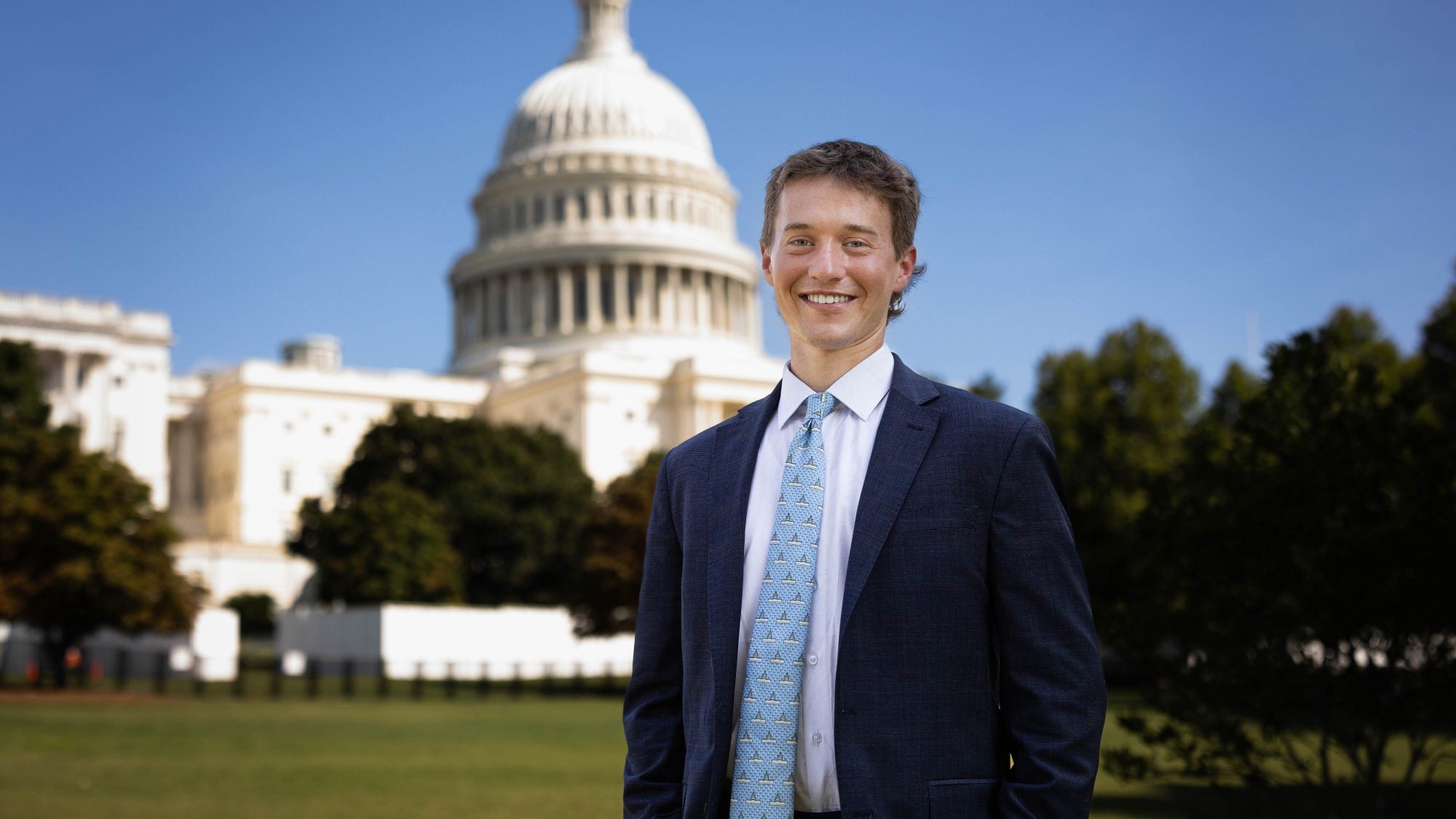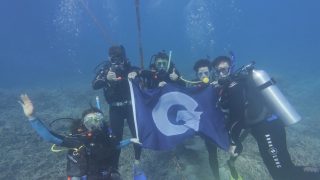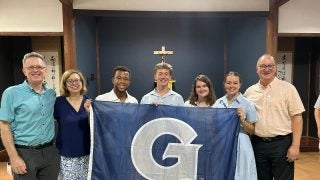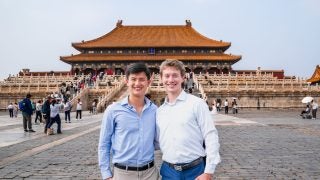Luke Hughes (SFS’27) is a Georgetown Storyteller and junior in the School of Foreign Service studying science, technology and international affairs. He is from Lake Forest, Illinois.
At first glance, my academic life at Georgetown can seem rather all over the place. I am majoring in science, technology and international affairs (STIA) with a minor in history and certificate in Australia, New Zealand and Pacific Studies. And I‘m also studying abroad in Sydney, Australia. Unfortunately for me, the number of courses that overlap between these subject areas is quite limited.
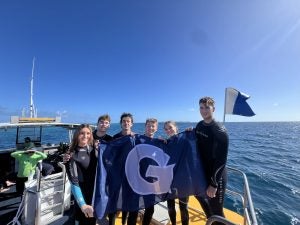
However, this challenge has helped me get the most out of my Georgetown academics. I’ve learned from the world’s leading professors and identified unique intersections between my wide range of interests. Because of this, finding the balance in my academic life has been such a joy rather than a burden.
Here’s how I’ve balanced my coursework at Georgetown.
Intertwining My Interests
It is common for students in the School of Foreign Service to choose a regional focus. For me, it is the Asia-Pacific. My certificate in Australia, New Zealand and Pacific Studies is an opportunity to deepen my understanding of STIA topics such as global trade and climate change mitigation. Only two of the six required courses must be taken on campus, providing me with the flexibility to study in Sydney. Here, I am enrolled in four courses — about topics such as coral reef conservation and Australian nuclear development — that will count toward my Georgetown degree. I chose these classes because they align with my broader academic focus of exploring the role of emerging technology in addressing the world’s most pressing challenges.
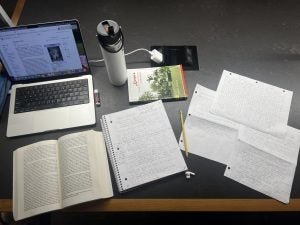
After taking Middle East I in my first year, I picked up a history minor because of the world-renowned strength of the history department and the relatively light requirements of the minor. Furthermore, my advising dean noted that a strong historical lens would provide me with a unique perspective in my STIA courses. I’ve taken courses about the history of countries and communities in the Asia-Pacific, drawing a line between my minor and certificate.
My subject interests cover multiple schools and departments at Georgetown. If you ever feel overwhelmed by the academic opportunities on the Hilltop, I hope my experience can provide some reassurance that it will all work out. Even if you have interests in departments across all of Georgetown’s schools, there are still so many opportunities to find programs that complement each other.
Making the Most of Experiential Learning
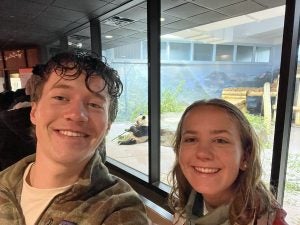
It’s also important to remember that Hoyas can learn about the world around them outside of traditional academic experiences. Your majors, minors and certificates don’t have to define you.
Georgetown’s non-traditional courses have helped me balance my academic life. I chose Georgetown partly because of its Georgetown’s Jesuit identity. While I’d love to take more theology classes, I don’t have much time during the semesters. Enrolling in Ignatian Tradition and Pilgrimage, one of the Magis Immersion Seminars, gave me the opportunity to explore the intersection of history and theology while keeping my academic schedule manageable..
Through this course that follows the life of St. Ignatius, I traveled across Spain during my spring break and strengthened my historical analysis skills. Our class only met once every other week following the trip, freeing up space in my schedule while still allowing me to explore theology. The Centennial Labs in the SFS also offer students great opportunities for non-traditional learning.
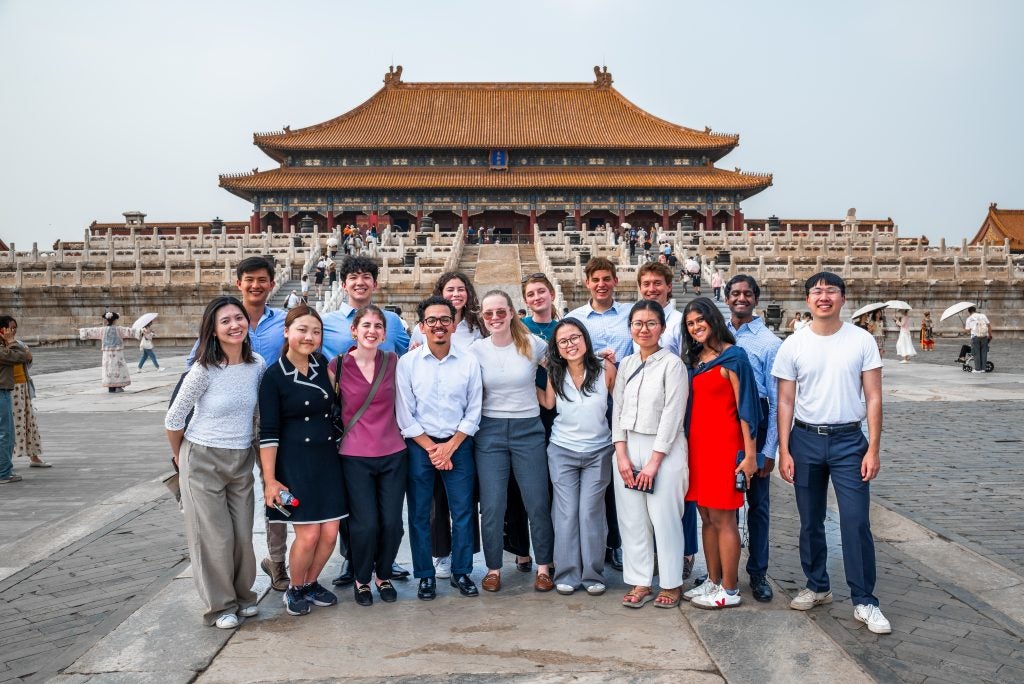
Georgetown also offers numerous opportunities to learn outside of the classroom, through various programs and initiatives. I have limited time during the academic year to explore my interest in U.S.-China relations. As a participant in the US-China Student Dialogue on Global Issues, I traveled to Beijing and Hong Kong in the summer and learned from Chinese university students about Chinese history, politics and culture. I may not have enough space to pursue a minor in government, but by being a member of two Student Strategy Teams through the Institute of Politics and Public Service, I have learned about White House operations and constitutional law without any assignments or exams.
Figuring it All Out
There are several things to remember when planning your academic experience at Georgetown. Most importantly, not everything needs to be figured out in your first semester. It took me until second semester of sophomore year to declare my minor and certificate, and even now I am still exploring other academic opportunities.
Here are some recommendations that may help.
Take a wide variety of courses during your first year and identify subjects that pique your interest. Listen to your advising dean’s recommendations. Build a schedule where you can balance completing core requirements and taking courses that you enjoy. And don’t be afraid to choose majors and minors that may appear unrelated. Time and again, I have heard from Georgetown alumni that employers enjoy seeing students with unique combinations because of the distinct perspectives they offer.
Georgetown is renowned for its excellence in academics across a variety of subject areas. As a Hoya, you have the incredible opportunity to take advantage of that. Make the most out of your time on the Hilltop and build an academic life that is best for you.
